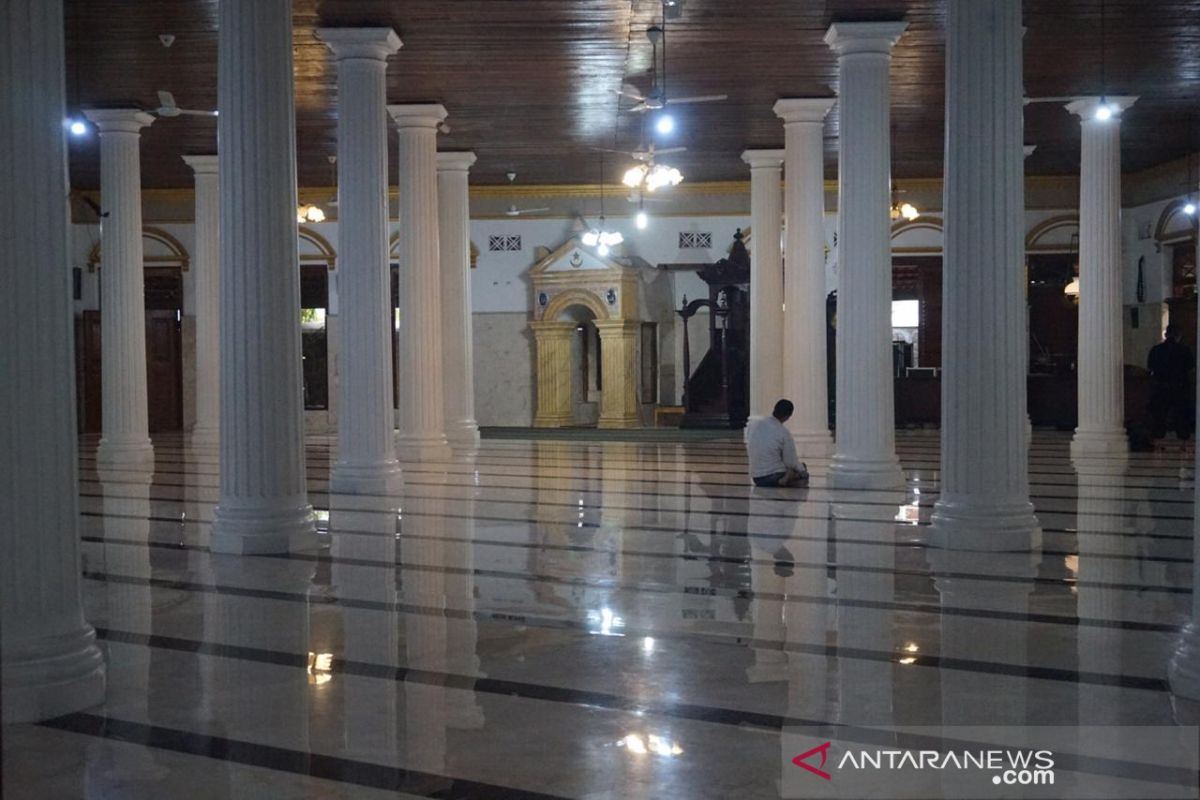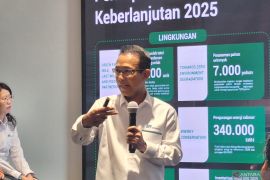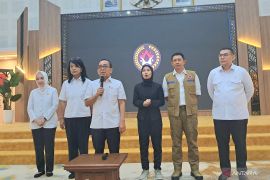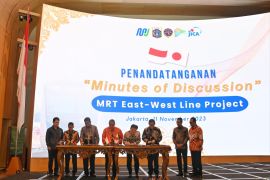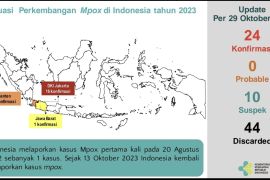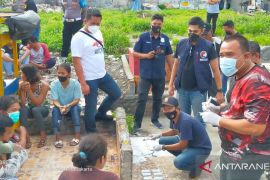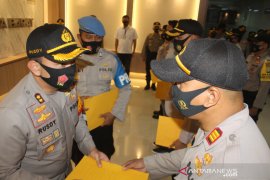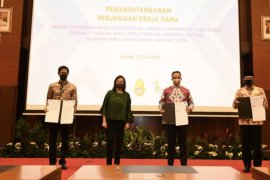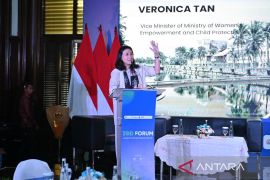Located in Tambora, West Jakarta, many are unaware that Kampung Arab Pekojan is part of the capital city’s old town, along with the infamous Fatahillah Square, the Chinatown in Glodok, and Sunda Kelapa harbor.
It was a melting pot for people of Arabic and Indian origins, and in the 18th century, the Dutch Indies government officially named the area 'Arab Village'.
The Area Management Unit (UPK) of Jakarta’s Old City is promoting the old town as an integrated tourism destination, the UPK Chief, Norviadi Setio Husodo, said.
“All this time, tourists would think the old town only consists of the iconic Fatahillah Square, when in fact, there are four locations. Aside from the Square, there is the Arab Village in Pekojan, Chinatown in Glodok and Sunda Kelapa harbor,” he said.
Related news: The charm of the 'instagrammable' Fatahillah Museum
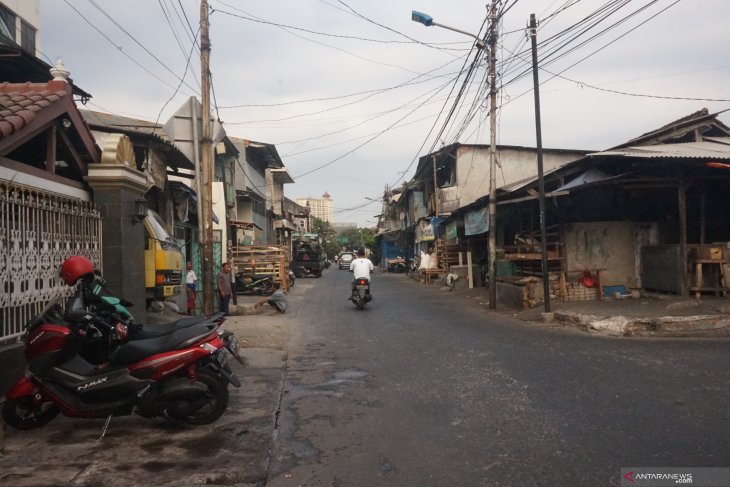
Pekojan is fourth in line for the integrated old town tourism development, only after Sunda Kelapa harbor, Fatahillah Square, and Chinatown.
In the meantime, the area is clinging to its title as the city’s oldest Arab Village. As ANTARA made its way along the strip of Pekojan Main Street, there were distinct characteristics of Arabic faces to be seen. At one of the corners, however, the pungent smell of Kasturi perfume overshadowed that of the goat pens.
Without any recognizable signs, just underneath one of the historical legacies from the village’s early days, Langgar Tinggi prayer center, two small shops had their doors open, one of which belonged to Latifah.
She was reluctant to tell her story as a woman of Arab-descent but revealed that she was not originally from Pekojan and moved there when she married her husband who had been living there for years.
Her shop was filled with knick-knacks from brassy gold bottles full of perfumes, to incense and a variation of oils. The walls were decked with pictures of her ancestors, all of whom had long beards and were wearing turbans.
“These are the stock we bought from Tanah Abang,” she said when asked whether she had brought the products from overseas.
Tanah Abang is another area where many of the original Pekojan residents had moved. The bustling trade hub also sells an abundance of products from Arabic countries.
Related news: Taste of heritage: culinary adventure in Jakarta's Old Town
The Arab community in the area has changed a lot over the years, one of the original residents of Pekojan, Diky Basandid, said. Back in the day, they were the majority group in the area, and now, as many families have moved to other parts of the city, their numbers have dropped.
“I could say that we are now a minority group here,” he said when talking about the ethnic group living alongside local Indonesians and a growing Chinese-descent population in the area.
Diky Basandid’s family have been residing in Pekojan for over five generations, taking part in every turn and change.
Basandid, who is a preacher at the An Nawier mosque, said that the slowly shrinking Arab community over the years also means that celebration of the holidays becomes a little dimmer every time someone or a family moves away.
“Back in the day, Islamic holidays, commemorations and other particular events were celebrated with much fanfare. We would gather together, most of the time in the house of a respected elder in the community,” he said.
These days, such lively celebrations can be seen only on major holidays, such as Eid Al-Fitr or Eid Al-Adha. Members of the community still in Pekojan do not get together as often anymore, as there is no particular respected figure of an elder in the community, Basandid revealed. A wide gap between generations has become the reason for the distance.
“Those who have moved away would make time to come back and gather here to celebrate. Sometimes they would also come back for weddings or to mourn the death of someone in the community,” he explained.
Related news: "Kresek" to "besek", Jakarta's plastic waste reduction effort on Eid
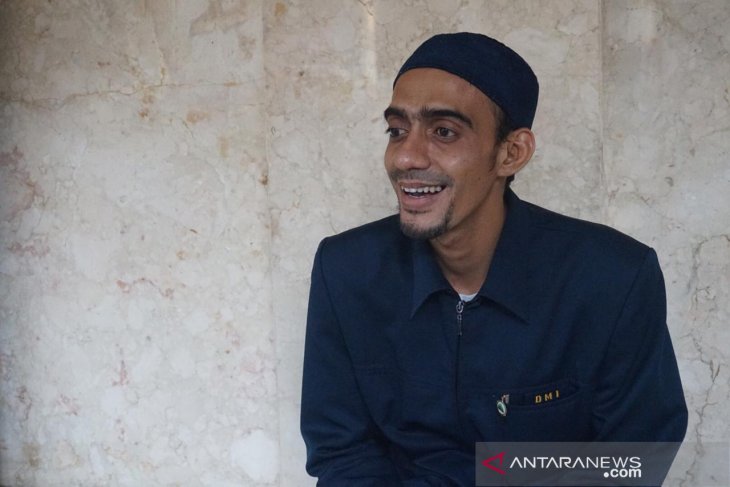
Harmonious co-existence
For the rest of the Arab-descent residents still living in Pekojan, coexisting with native Indonesians and other ethnic groups is part of their everyday lives. “There are some of us who also married native Indonesians,” Basandid said.
59-year-old Hamdah, a longtime resident of Pekojan shared similar views. The woman, whose parents were from Kalimantan and Bogor, said that some Arabic legacies are surviving among the communities in Pekojan.
“Many kinds of Arabic delicacies are often served here,” she said before she started listing Arabic cuisines such as kebuli lamb rice and sweet rice dishes.
“The Habib in the Langgar Tinggi mosque would also bring treats for the congregation, mostly in the holy month of Ramadhan. From spiced coffee to the pita bread,” she added.
Beyond the cuisines that have stood the test of time in Pekojan, the Arab-descent community hope for their Village to come back to its glory days.
“Insha Allah we are gathering all the energy we have here in Pekojan to unite and preserve its history. We hope for everyone here in Pekojan, and the authoritative bodies, to support this plan that we have had since 2013,” Basandid said.
EDITED BY INE
Related News: Looking closely at Chinese community in Jakarta
Related News: Indonesians in tunic dresses: Indian descendants in Pasar Baru
Related news: From palmist to living statues: transgressing sightseeing at Kota Tua
Editor: Azizah Fitriyanti
Copyright © ANTARA 2019
